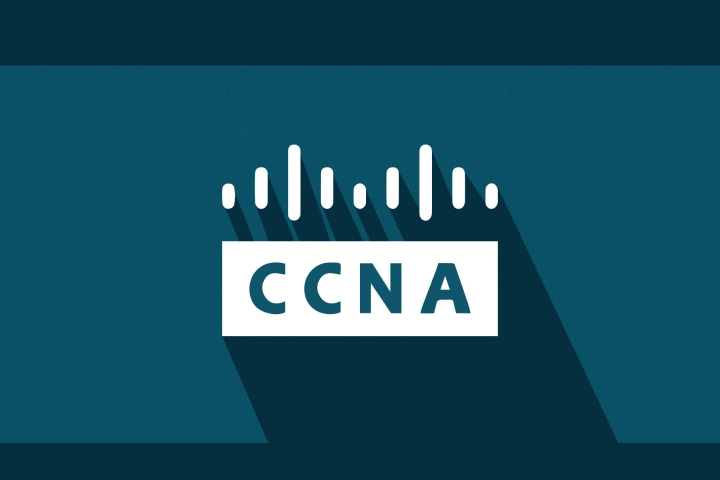Computer Network
What Types of Jobs Can You Get with a CCNA?
Cisco established the Cisco Certified Network Association (CCNA) certification to test competitor network information at the grassroots level.

Have you heard of CCNA? The CCNA certification belongs to the type of entry-level certifications in computer networks. Cisco established the Cisco Certified Network Association (CCNA) certification to test competitor network information at the grassroots level. This certificate classifies beginners’ ability to install, configure, use, and troubleshoot medium-sized switching and routing networks.
When an IT manager hires a new graduate to provide opportunities and career development to experienced workers, the IT manager recognizes the Cisco Certified Network Association (CCNA) certification. The CCNA exam includes a wide range of network ideas to prepare candidates for the technology used in today’s network environment. Let us look at CCNA a bit more.
Table of Contents
1. What is CCNA?
CCNA or Cisco Certified Network Associate is a well-established certification in the arena of computer networks. CCNA or Cisco Certified Network Associate is a leading certification program for all types of networking specialists. It includes entry-level network engineers, network support engineers, network specialists, and network administrators. To get CCNA certified, you will require CCNA training from an authorized training institute.
It is estimated that over 1 million CCNA certifications have been issued since its first release in 1998. The CCNA certificate comprises a wide range of network ideas. Get ready to plan for the latest web technologies that candidates may try right away.
Below are some topics to learn through CCNA certification.
- VLAN and WLAN
- Network Device Security
- IP Routing
- Network security and management (ACL included)
- IP addressing
- Routing protocols (OSPF, EIGRP, and RIP)
Please note that the Cisco certification is only applicable for three years. After the accreditation ends, the owner will need to take the CCNA certification exam for renewal.
2. Benefits to your career
The Benefits Of CCNA Certification go far beyond the contracting procedure. If you want to lay the foundation for a promising network career, you may have to go on a certification route for various reasons.
Solid technical influence
Whether it’s a CCNP, CCNA, CyberOps partner, or DevNet, the Cisco certification program can touch the technology. It can also develop skills that can be used in your IT career, no matter where you are. To get certified, follow the steps below to test and confirm your accurate understanding and experience.
Important non-technical skills
CCNA certification includes more than just technical abilities. To be certified, you are also exposed to puzzle-solving and advanced thinking prospects. If the topology does not work effectively, you need to develop new teamwork, such as communicating with your classmates. All of these abilities are better than ever on your owner’s wish list.
Get the bigger picture of technology.
When you get a job, you can focus on one or two technologies for that position. However, certification allows you to be exposed to a wider variety of subjects and technologies, thus providing you with a broader perspective and expertise throughout your career. You can also learn about the latest inventions and advancements.
Get on the fast track.
Certification can speed up the promotion procedure and prepare for a much more significant salary increase. The average salary of Cisco certified professionals has increased by $ 12,000 to $ 13,000 (Source: IT Skills and Salary Report 2020, Global Knowledge).

3. Jobs you can get with the CCNA
CCNA is an advanced elementary certification (or so-called associated level) managed by Cisco, which has the idea of Layer 2 and Layer 3 switching and routing and how they are used in Cisco hardware. Cisco CCNA has a history of over 20 years and has always been very famous.
Cisco is also developing other CCNA certifications such as CCNA Security, CCNA Cyber Ops, and CCNA Wireless. These certifications are equivalent to association-level credentials in a Cisco configuration, but CCNA usually refers to its CCNA routing and exchange certificate.
CCNA is supposed to encourage any number of career choices based on intermediate networks. These positions include network engineers, network supervisors, network engineers, network detectives, and, in some cases, network security professionals. Not all network engineers do very related things because these positions have different names in different organizations. The network director of one organization is the network engineer of another organization.
No matter what, the Cisco CCNA is designed to prove that you are prepared to handle the network environment responsible for network wiring, switch and router installation and configuration, and troubleshooting. Most executives may not be in a hurry to allow you to be accessible on the network and operate progressively more dangerous activities.
If you are a Cisco CCNA holder but have no other technical knowledge, degree, or certification, you can still get a specialized job. Either way, things are sure to be a bit difficult. Other positions include:
- Network Design Engineer
- Unified Communications Engineer
- Cloud Engineer
- Collaboration Engineer
- Network Administrator
- Network Analyst
- Infrastructure Engineer
- Network Administrator
- Cloud Architect
- VoIP Engineer
- Systems Administrator
- Solutions Design Engineer
- Telecom Engineer
4. The CCNA can get you in; however, it will not keep you there.
CCNA has determined that it is sufficient for some companies to adopt it as a networking-based position. Even if nothing else appears on your resume, it’s unlikely that you’ll stay in the company, and it certainly won’t help you move forward.
If you can rely solely on CCNA for a job, your first job should complement your knowledge and skills with talents beyond the CCNA certification. One of the highly essential things for you is to gain experience. You can gain work experience by finding and completing other projects and evaluating new things every day. Get in the habit of recording the new skills you acquire. If you find yourself in a technical position, you need to master at least one new skill every day.
Use your free time to learn new abilities to improve your work. That may be information about the operating system your company uses on your network (such as Windows Server or Linux), or it may be knowledge about network security. Be sure to learn new knowledge every day to supplement your CCNA certification with your resume.
Conclusion
Jobs and duties are not uniform and can vary depending on the organization’s size, whether it is a company or government agency, technology, and IT strategy adopted.
-

 Instagram4 years ago
Instagram4 years agoBuy IG likes and buy organic Instagram followers: where to buy them and how?
-

 Instagram4 years ago
Instagram4 years ago100% Genuine Instagram Followers & Likes with Guaranteed Tool
-

 Business5 years ago
Business5 years ago7 Must Have Digital Marketing Tools For Your Small Businesses
-

 Instagram4 years ago
Instagram4 years agoInstagram Followers And Likes – Online Social Media Platform















